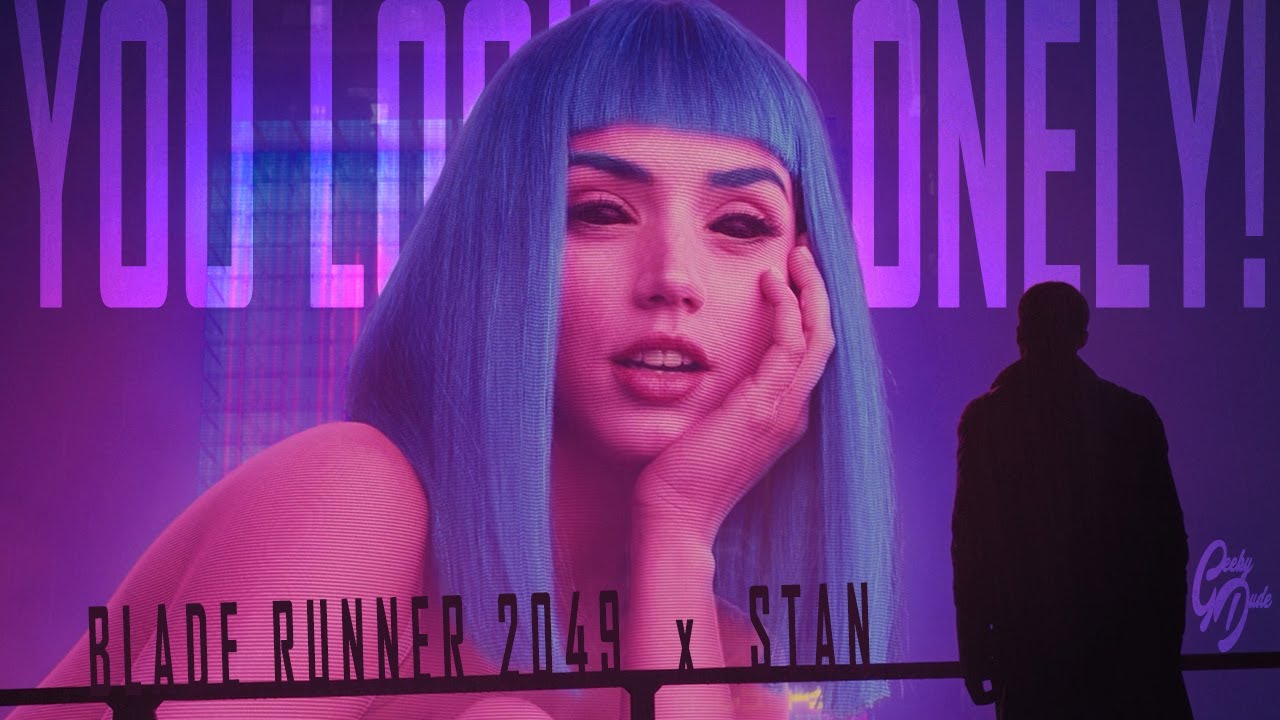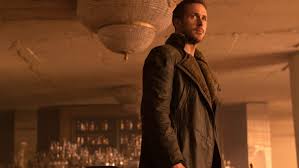🎬 Blade Runner 2049 (2017)

Blade Runner 2049 (2017) Movie Review: A Visually Stunning and Philosophically Profound Sequel
Blade Runner 2049 (2017), directed by Denis Villeneuve, is a highly anticipated sequel to the 1982 cult classic Blade Runner. Set thirty years after the events of the original film, 2049 is a cinematic masterpiece that takes the dystopian world of the first film to new heights, both in terms of visual spectacle and philosophical depth. Starring Ryan Gosling as K, a replicant “blade runner,” and Harrison Ford reprising his iconic role as Rick Deckard, the film delves into themes of identity, humanity, and artificial intelligence, all within a beautifully realized future world.
Plot Overview: The Search for Identity and Truth
The story of Blade Runner 2049 is set in a grim, future Earth where humanity has created bioengineered beings known as replicants. These replicants are designed to serve human needs but often find themselves oppressed and marginalized. K (Ryan Gosling), a blade runner tasked with hunting down older model replicants, uncovers a secret that could alter the course of history: a replicant has given birth, a phenomenon believed to be impossible.
K’s journey to uncover the truth about the child leads him on a path of self-discovery, as he begins questioning his own identity and purpose. Along the way, he encounters the elusive Rick Deckard (Harrison Ford), whose connection to the child becomes central to the mystery. As K unravels the secrets surrounding the child, he confronts the larger question of what it means to be human and whether a replicant can possess true consciousness and self-worth.
Themes: Identity, Humanity, and the Nature of Consciousness
At its core, Blade Runner 2049 is a meditation on the nature of identity, memory, and humanity. Much like its predecessor, the film explores the existential struggles of replicants, beings created to serve humans yet yearning for more—yearning for meaning and purpose. The central question posed is whether a replicant, despite being artificially created, can possess true humanity.
K’s journey is one of profound self-discovery, as he grapples with the idea that his memories may not be his own, and that his sense of purpose may be based on a lie. As K’s search for the truth about the child unfolds, he faces the realization that even though he is not human, his emotional experiences and desires are deeply human. This philosophical questioning forms the backbone of the film, raising the stakes of K’s journey beyond simple action or mystery.
The theme of memory plays a central role in the narrative. Memories, both real and artificial, define who we are and influence our actions. In 2049, memory is used as a tool to create identity and form connections, but it is also a source of manipulation and control. The idea that replicants have their memories artificially implanted to give them a sense of a past is a poignant commentary on how memory shapes our lives.
Another key theme is the pursuit of purpose. K, like the replicants in the original Blade Runner, is searching for a sense of meaning in a world that views him as nothing more than a tool. His quest for truth is not just about uncovering the identity of the child but also about discovering his own purpose and role in a world that sees him as disposable.
Visuals and Cinematography: A Feast for the Eyes
One of the standout features of Blade Runner 2049 is its breathtaking cinematography, helmed by Roger Deakins, whose work has earned him numerous accolades, including an Academy Award for Best Cinematography. The film’s visual style is stunning, with sweeping landscapes, neon-drenched cityscapes, and hauntingly beautiful dystopian environments. Each shot is meticulously crafted, creating a sense of wonder and awe that is rarely seen in modern cinema.
The film’s world-building is exceptional, and its use of color and lighting adds layers of meaning to the narrative. The stark contrast between the cold, desolate landscapes of the outside world and the vibrant, futuristic interiors of the city reflects the film’s exploration of the divide between humanity and artificiality. The cinematography enhances the themes of isolation and alienation, creating a world that feels both vast and claustrophobic, much like the inner turmoil of the characters.
Performances: Ryan Gosling and Harrison Ford Shine
Ryan Gosling delivers a nuanced and compelling performance as K, the replicant blade runner who is both emotionally distant and deeply vulnerable. Gosling masterfully conveys K’s internal struggle as he questions his own identity and begins to confront the realization that he may not be the “chosen one” he thought he was. His portrayal of K is restrained yet emotionally rich, capturing the character’s complex journey from obedient servant to self-aware individual.
Harrison Ford’s return as Rick Deckard brings a sense of gravitas to the film, tying it to the original Blade Runner. Deckard’s character is a man haunted by his past, and Ford’s performance reflects the toll that time and regret have taken on him. The chemistry between Ford and Gosling adds depth to the narrative, particularly as their characters’ fates intertwine in unexpected ways.
Supporting performances from Ana de Armas, Sylvia Hoeks, and Jared Leto further elevate the film. Ana de Armas plays Joi, K’s artificial companion, whose relationship with him adds an emotional layer to the story. Sylvia Hoeks portrays Luv, a replicant enforcer with a dangerous edge, while Jared Leto plays Niander Wallace, the visionary creator of the new generation of replicants. Each actor brings their character to life with precision, contributing to the film’s rich emotional landscape.
Critical Reception: A Cinematic Triumph
Upon its release, Blade Runner 2049 was met with widespread critical acclaim. Many hailed it as a worthy successor to the original Blade Runner, praising its deep philosophical themes, stunning visuals, and exceptional performances. The film received numerous awards, including the Academy Award for Best Cinematography, and was nominated for several other Oscars, including Best Visual Effects and Best Production Design.
Critics have called Blade Runner 2049 a masterclass in filmmaking, with many noting its ability to expand on the original film’s world while telling a fresh and thought-provoking story. It’s been described as a film that doesn’t just rely on action or spectacle but instead takes the time to explore complex themes and emotions, making it a rich and rewarding cinematic experience.
On Rotten Tomatoes, Blade Runner 2049 boasts an impressive approval rating, with the consensus praising its “stunning visuals, evocative score, and philosophical depth.” The film has become a modern sci-fi classic, cementing its place as one of the best films of the 21st century.
Conclusion: A Visually Spectacular and Philosophically Deep Sequel
Blade Runner 2049 is a triumph of modern cinema. With its stunning visuals, thought-provoking themes, and exceptional performances, it is a film that continues the legacy of the original Blade Runner while exploring new questions about identity, humanity, and artificial intelligence. It’s a film that rewards patience and contemplation, offering a rich, immersive experience that lingers long after the credits roll.
For fans of the original Blade Runner and anyone interested in a deep, philosophical exploration of the future of humanity, Blade Runner 2049 is a must-watch. It is a film that challenges our understanding of what it means to be human and leaves us questioning the future of artificial life.
⭐ Final Rating: 9/10